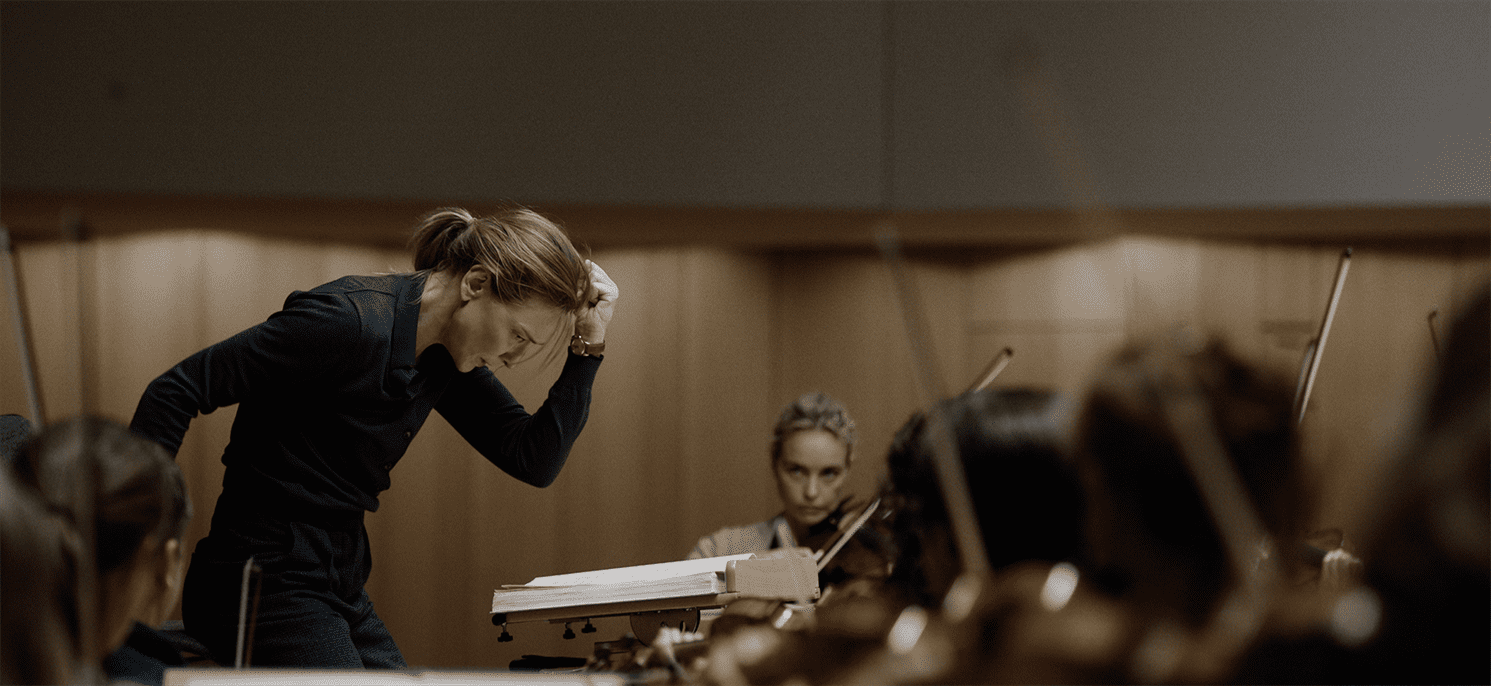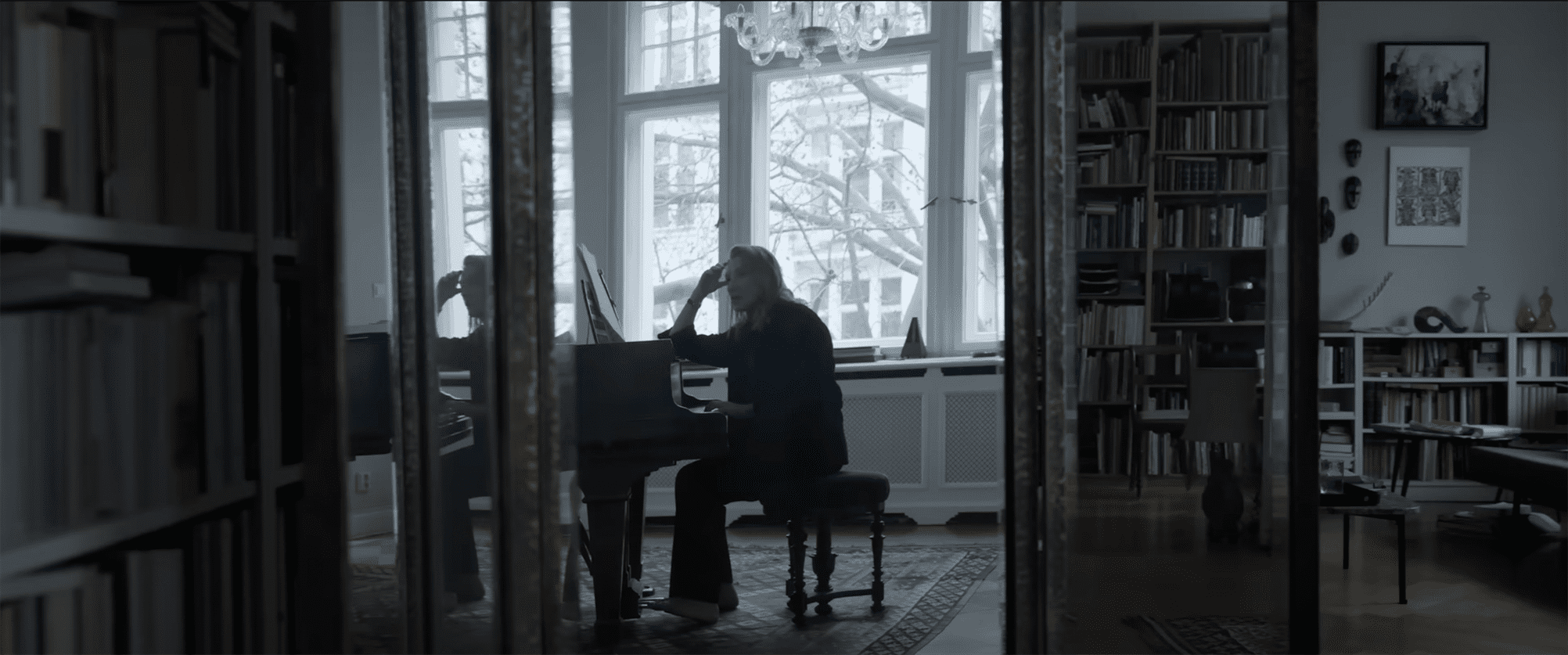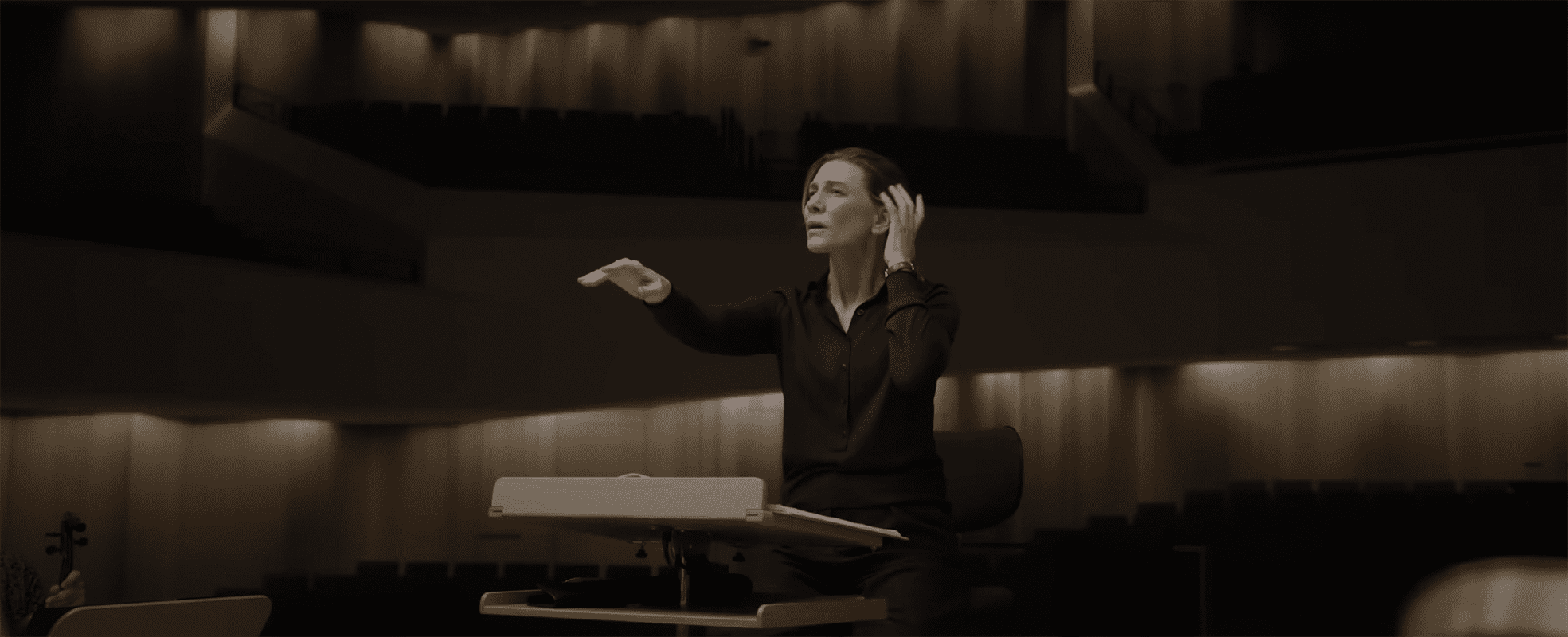Character-centric movies always fall short without a commanding lead. But director Todd Field’s “TAR” transforms Blanchett into a mesmerizing, intoxicating presence on the screen, leaving a massive impact on acting as a whole.
The film centers on the unapologetic Lydia Tar (Blanchett), the world-famous, first-ever female chief conductor of the Berlin Philharmonic. In her successful life, Lydia achieves a high-class reputation in the world of classical music, even being a prestige professor at The Juilliard School. Moreover, Lydia is married to Sharon Goodnow (Nina Hoss), who happens to be the orchestra’s concertmaster, and cares for their adopted daughter, Petra (Mila Bogojevic).

Lydia Tar (Blanchett) is the world-famous, first-ever female chief conductor of the Berlin Philharmonic.
Photo courtesy of Focus Features
All of this shortly comes to an uneventful demise for Lydia as a scandal about her relationship with her former protege, Krista, surfaces. Her luxurious world starts to crumple and collapse as Lydia faces the reality and consequences of her actions.
Although the writing and the character arc are phenomenal, the beginning of the film could have been a bit better. The pace at the start seems dragged out before anything substantial appears; nonetheless, the subject matter and extraordinary performance make up for the minor flaws in “TAR.”
The film serves as a thought-provoking experience for the audience, diving deep into how society views the #MeToo movement as well as “cancel culture.” Field puts the subject matter under a microscope in his film as a statement on how the perception of power and gender poorly dictate societal perspective.
Obviously, Lydia is shown as a very callous individual with little room for compassion. Her success and ambition guide her blindingly through the world of power. In her personal life, Lydia sheds no love towards Sharon; the relationship seems more strictly transactional rather than unconditional. In her professional life, Lydia treats everyone, including her assistant Francesca Lentini (Noemie Merlant), with harsh impudence as if they are inferior to her unyielding ego.

The film would have not received its noble success without Blanchett’s committed performance.
Photo courtesy of Focus Features
But when the scandal surfaces on social media and the press, Lydia’s life takes a drastic turn where her position of power begins its self-destructive toll.
Field makes exceptional marks on his side as a director with the gorgeous, nerve-inducing one shots the film is packed with, instilling a slow-burn pace for the viewers. The film does have its dragging moments of long dialogues, but the subtle humor complements the ever-stirring fire of Lydia’s spiral.
Also worth mentioning from Field’s directions is the usage of exemplary sound effects. Throughout the entirety of the film, the only score that plays is from the actual orchestra whenever Lydia is conducting. Besides that, there are numerous occasions where the sounds of daily objects are amplified to precisely pinpoint the title character’s deep, convicted beliefs. The sounds are vital elements in making the audience feel nervous and uneasy as if they are Lydia themself.
It goes without saying that the film would have not received its noble success without Blanchett’s committed performance. Credit to Field’s directions, he assures whenever Blanchett is on screen, all attention is magnetized toward her, from the background characters to the audience. Blanchett brings out the best of her craft in Lydia, playing such a corrupt character so miraculously. Her presence delivers such urgency and authority that nobody can look away from what she has to say.

Blanchett carries the whole film on her shoulders with such dedication and emotion.
Photo courtesy of Focus Features
For example, when Lydia gives a lecture on conducting at Juilliard, Blanchett warps herself into an egotistical person; she carries a conversation between her and a student so shamelessly and manipulatively as if the audience was watching a documentary. The last 30 minutes of the film is where Blanchett rises above the film’s astounding quality, paving the way toward a third Oscar win for the actress.
This is her best performance in years — maybe in her whole career. The actress carries the whole film on her shoulders with such dedication and emotion. In a way, Blanchett is “TAR;” she is the film.
As award season begins later this year, “TAR” will no doubt be the talk of the town, sweeping as much of recognitions and awards as it possibly gets, especially for Blanchett’s immersive performance.



